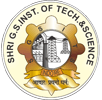Program Educational Objectives (PEOs)
[PEO1] To prepare engineering graduates to become empowered IT technocrats with comprehensive knowledge and skills to serve the evolving IT industry.
[PEO2] To empower graduates to pursue higher education and research.
[PEO3] To develop skills to become an entrepreneur by observing global changes and needs.
[PEO4] To prepare engineering graduates who are conditioned to handle challenging tasks as an individual or as a team.
List of Program Outcomes (POs).
1. Engineering knowledge: Apply the knowledge of mathematics, science, engineering fundamentals, and an engineering specialization to the solution of complex engineering problems.
2. Problem analysis: Identify, formulate, review research literature, and analyze complex engineering problems reaching substantiated conclusions using first principles of mathematics, natural sciences, and engineering sciences.
3. Design/development of solutions: Design solutions for complex engineering problems and design system components or processes that meet the specified needs with appropriate consideration for public health and safety, and the cultural, societal, and environmental considerations.
4. Conduct investigations of complex problems: Use research-based knowledge and research methods including design of experiments, analysis and interpretation of data, and synthesis of the information to provide valid conclusions.
5. Modern tool usage: Create, select, and apply appropriate techniques, resources, and modern engineering and IT tools including prediction and modeling to complex engineering activities with an understanding of the limitations.
6. The engineer and society: Apply reasoning informed by the contextual knowledge to assess societal, health, safety, legal and cultural issues and the consequent responsibilities relevant to the professional engineering practice.
7. Environment and sustainability: Understand the impact of the professional engineering solutions in societal and environmental contexts, and demonstrate the knowledge of, and need for sustainable development.
8. Ethics: Apply ethical principles and commit to professional ethics and responsibilities and norms of the engineering practice.
9. Individual and team work: Function effectively as an individual, and as a member or leader in diverse teams, and in multidisciplinary settings.
10. Communication: Communicate effectively on complex engineering activities with the engineering community and with society at large, such as, being able to comprehend and write effective reports and design documentation, make effective presentations, and give and receive clear instructions.
11. Project management and finance: Demonstrate knowledge and understanding of the engineering and management principles and apply these to one’s own work, as a member and leader in a team, to manage projects and in multidisciplinary environments.
12. Life-long learning: Recognize the need for, and have the preparation and ability to engage in independent and life-long learning in the broadest context of technological change.
Program Specific Outcomes
PSO 1: Application of Engineering and Scientific Knowledge
Graduates will be able to apply the fundamentals of mathematics, science, and core engineering principles to analyze and solve complex problems in their specific engineering domain.
(Aligns with POs 1, 2, 4)
PSO 2: Design and Development of Engineering Solutions
Graduates will be capable of designing and developing innovative engineering solutions, systems, or processes that address real-world challenges, taking into consideration public safety, societal and environmental factors.
(Aligns with POs 3, 6, 7)
PSO 3: Use of Modern Tools and Ethical Practices
Graduates will demonstrate proficiency in using modern engineering tools and technologies for problem-solving and project execution, while upholding professional ethics, effective communication, teamwork, and readiness to adapt technological advancement for lifelong learning.
(Aligns with POs 5, 8, 9, 10, 11, 12)


